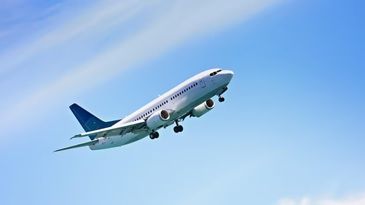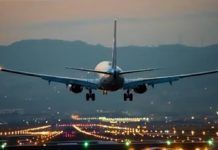There has been an increase in GPS interference recorded over conflict zones globally, including India’s borders with Pakistan and Myanmar. This has become a challenge for passenger planes flying over these zones, risking their safety, according to a report by OPS Group, a global network of aviation professionals focused on enhancing flight safety and operational efficiency.
The report, published in September this year, states that the increase in GPS interference near borders is primarily due to heightened security measures and the proliferation of drone technology for illicit activities.
This also includes ‘spoofing’, a form of cyber attack which involves deliberate transmission of false GPS signals designed to deceive GPS receivers. Recently, GPS interference was seen on the Azerbaijan Airlines flight which crashed in Kazakhstan, killing 38 passengers. In a statement, Russia, without acknowledging its role, said its air defence systems were firing near the airport to counter Ukrainian drones as the airliner “repeatedly” attempted to land there.
According to the report, daily spoofing has been occurring in the Delhi Flight Information Region since May 2024. Areas north-west of New Delhi, and in the area of Lahore, are the most affected. The report ranked this area at the ninth position among the top 20 Flight Information Regions, with 316 aircraft impacted by spoofing between July 15 to August 15.
Notably, there has been an increased occurrence of use of drones to smuggle arms, drugs, and contraband into Indian territory from across the western and eastern borders. The western border, particularly along Punjab and Rajasthan, has witnessed frequent incidents of drones from Pakistan dropping weapons, narcotics, and counterfeit currency.
According to an ORF report, drone activities in Punjab surged from 48 sightings in 2020 to 267 in 2022, accounting for 83 per cent of all drone activities reported along the India-Pakistan border in that year. Similarly, in the eastern sector, drones are increasingly used to transport contraband, including gold and exotic wildlife, from countries like Myanmar and Bangladesh.
At the 14th Air Navigation Conference held by the International Civil Aviation Organisation (ICAO) in Montreal this year, delegates acknowledged the escalating incidents of Global Navigation Satellite Systems (GNSS) interference, which can lead to inaccuracies in aircraft positioning and navigation systems, thereby compromising safety. The conference recommended measures to mitigate GNSS interference, including improved guidance for pilots, enhanced information sharing among stakeholders, and establishment of a global contingency plan to manage GNSS outages.








